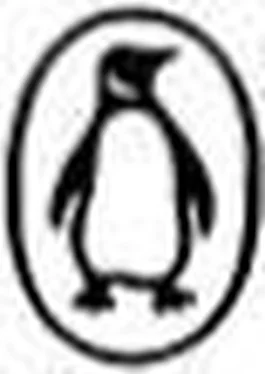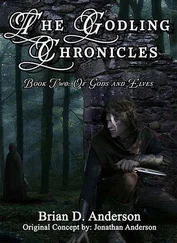Davidson, H. - Gods and Myths of Northern Europe
Здесь есть возможность читать онлайн «Davidson, H. - Gods and Myths of Northern Europe» весь текст электронной книги совершенно бесплатно (целиком полную версию без сокращений). В некоторых случаях можно слушать аудио, скачать через торрент в формате fb2 и присутствует краткое содержание. Жанр: Старинная литература, на английском языке. Описание произведения, (предисловие) а так же отзывы посетителей доступны на портале библиотеки ЛибКат.
- Название:Gods and Myths of Northern Europe
- Автор:
- Жанр:
- Год:неизвестен
- ISBN:нет данных
- Рейтинг книги:5 / 5. Голосов: 1
-
Избранное:Добавить в избранное
- Отзывы:
-
Ваша оценка:
- 100
- 1
- 2
- 3
- 4
- 5
Gods and Myths of Northern Europe: краткое содержание, описание и аннотация
Предлагаем к чтению аннотацию, описание, краткое содержание или предисловие (зависит от того, что написал сам автор книги «Gods and Myths of Northern Europe»). Если вы не нашли необходимую информацию о книге — напишите в комментариях, мы постараемся отыскать её.
Gods and Myths of Northern Europe — читать онлайн бесплатно полную книгу (весь текст) целиком
Ниже представлен текст книги, разбитый по страницам. Система сохранения места последней прочитанной страницы, позволяет с удобством читать онлайн бесплатно книгу «Gods and Myths of Northern Europe», без необходимости каждый раз заново искать на чём Вы остановились. Поставьте закладку, и сможете в любой момент перейти на страницу, на которой закончили чтение.
Интервал:
Закладка:
HELGI THE LEAN: Early settler in Iceland, of mixed faith, who came out from the Hebrides
HELGRIND: ‘Death gate’, between the worlds of the living and the dead
HELI AND: Old Saxon poem of the ninth century about Judgement Day
HEOROT: Hall built by the Danish king Hrothgar, as recounted in Beowulf
HEREBEALD: Son of King Hrethel of the Geats, killed accidentally by his brother, according to Beowulf
HERMOD (HERMÓðR): Son of Odin, who rode to Hel to seek Balder
HERVARAR SAGA OK HEIðREKS: One of the legendary sagas in the Fornaldar Sǫgur collection, the story of King Heiðrekr and his descendants (translated by N. Kershaw, Stories and Ballads of the Far Past , Cambridge University Press, 1921)
HILDISVÍN: ‘Battle Pig’. Boar owned by Freyja, and also name of helmet possessed by Swedish kings
HLIðSKJÁLF: Seat of Odin from which he can look out to all worlds
HODER (HǪðR): Hotherus in Saxo’s account. A god, said to be blind, who slew Balder, but a hero in Saxo
HOENIR (HŒNIR): A god, renowned for his silence
HÓLMGANGA: ‘To go to the island’. Term used for the official duel, fought at an accepted duelling place, which at Thingvellir in Iceland was an island beside the place of assembly
HORD (HǪRðR): Famous outlaw, hero of Harðar Saga
HRAFNKELL: Hero of Hrafnskels Saga Freysgoða , one of the Icelandic family sagas, where he is represented as a worshipper of Freyr (translated by G. Jones, Four Icelandic Sagas , Princeton, 1935)
HRAFNSMÁL: Poem by Þorbjǫrn Hornklofi, composed in the ninth century, about the followers of Harald Fairhair. Also known as Haraldsmál and Haraldskvœði (translated by N. Kershaw, Anglo-Saxon and Norse Poems , Cambridge University Press, 1922)
HRETHEL (HREðEL): King of the Geats in Beowulf and grandfather of the hero of the poem
HROLF KRAKI (HRÓLFR KRAKI): Famous warrior-king of Denmark, whose story is told in one of the legendary sagas, Hrólfs Saga Kraka (translated by G. Jones, in Eric the Red and other Icelandic sagas , World’s Classics, 1961)
HROTHGAR (HROðAR): King of the Danes who built the hall Heorot and was visited by Beowulf
HRUNGNIR: Giant who was killed in a duel with Thor
HUGI: ‘Thought’. Youth who competed with Thialfi in a race in the hall of Utgard-Loki
HUGINN: From hugi , thought. One of Odin’s ravens
HÚSDRAPA: Tenth-century poem by Ulfr Uggarson describing various mythological scenes
HYMIR: Sea giant with whom Thor went fishing on his expedition to catch the World Serpent, as told in the poem Hymiskviða in the Edda
HYNDLULJÓð: Lay of Hyndla, a giantess who appears as the rival of Freyja and is persuaded to reveal the ancestry of Ottar. A poem in the Edda
IBN FADLAN: Arab traveller and diplomat who visited Swedish settlers on the Volga in the tenth century and left an account of them
IDUN (IðUNN): Wife of Bragi and goddess who guarded the golden apples of youth for the gods
ING: God or hero of Anglo-Saxon tradition, connected with Denmark, and the founder of the royal dynasty of Bernicia
INGIMUND: Icelandic settler, the story of whose family is told in Vatnsdœla Sag a, one of the Icelandic family sagas
IRMINSUL: Pillar which supports the world in Germanic tradition
JOMSBORG: Viking stronghold, said to be built by Harald Gormsson of Denmark, somewhere on the coast of Wendland, in the late tenth century. Held by garrison known as Jomsvikings
JORDANES: Historian of the sixth century who wrote a history of the Goths, De origine actibusque Getarum (translated Mierow, Princeton, 1915)
JOTUNHEIM (JǪTUNHEIMR): Realm of the Jǫtnar, or giants
KALEVALA: National epic of the Finns, put together from old lays by Elias Lonnrot (translated by W. F. Kirby, 1907)
KETILS SAGA HŒNGS: One of the legendary sagas telling the story of the Norwegian hero Ketill, in the Fornaldar Sǫgur series
KJALNESINGA SAGA: One of the Icelandic family sagas, containing legendary material similar to that in the Fornaldar Sǫgur
KORMÁKS SAGA: One of the Icelandic family sagas, the story of Kormak, a poet and adventurer of the ninth century (translated by L. M. Hollander, New York, 1949)
KVASIR: Called the wisest of the gods, a being made from the saliva of the Aesir and Vanir, from whose blood was made the mead of inspiration
LANDNÁMABÓK: Book of the settlement of Iceland, originally written by Ari the Wise in the eleventh century, but added to by others
LEMMINKAINEN: Hero of some of the lays in the Kalevala , who was killed and brought to life again by his mother
LODUR (LÓðURR): One of the gods said to take part in the creation of man
LIF (LÍF): ‘Life’. Said in Vafþruðnismál to be preserved through Ragnarok in order to found a new race of men
LIFTHRASIR (LÍFÞRASIR): ‘Eager for life’ (?). Companion of Lif
LOGI: ‘Flame’. Competitor who outdid Loki in an eating contest in the hall of Utgard-Loki
LOKASENNA: ‘Loki’s Mocking’. Poem in the Edda which describes Loki mocking and abusing all the gods and goddesses in turn
LOKI: Inhabitant of Asgard who frequently causes mischief, and who was bound under the earth for his part in the slaying of Balder, to break loose at Ragnarok
LYTIR (LÝTIR): God who according to a story in Flateyjarbók was worshipped by the Swedes
MAGNI: Son of Thor and the giantess Járnsaxa, who survives Ragnarok and has part possession of Thor’s hammer
MANANNÁN MAC LIR: Celtic god of the sea
MENGLAD (MENGLǪð): ‘Necklace-glad’. Maid of supernatural realm, wooed by Svipdagr in the Edda poem Svipdagsmál
MERSEBURG CHARMS: Two pagan spells found in 1841 in a ninth-century MS. in the Merseburg Cathedral Library.
MIDGARD (MIDGARðR): The world of men, midway between the gods and the giants
MIDGARD SERPENT (MIðGARðSORMR): The World Serpent, curled round the earth, beneath the sea, which is to break loose at Ragnarok
MIMIR (MÍMIR): Also found as Mímr and Mími. A wise being associated with the World Tree and the Spring of Urd. Put to death by the Vanir, after which his head was kept by Odin and consulted in time of perplexity
MIMINGUS: Old man from whom Hotherus (Hoder) obtained a magic sword with which to kill Balder, in Saxo’s account
MIST-CALF (MǪKKURKALFI): Clay man made by the giants to support Hrungnir in his duel with Thor
MISTLETOE (MISTILLTEINN): Name of a wonderful sword possessed by Hromund Greipsson and others
MJOLLNIR (MJǪLLNIR): Hammer of Thor, made by the dwarfs, to protect the gods from their enemies
MODGUD (MOðGUðR): Maiden who kept the bridge on the road to Hel
MOTHERS: Group of female deities connected with plenty who were worshipped by the Germans and Celts in Roman times
MUSPELL (MÚSPELL): Realm of fire, the heat from which helped in the creation of the world. The sons of Muspell ride out against the gods at Ragnarok
MUSPILLI: Name given to a German poem about the end of the world, where this word is used. The poem is in a tenth-century MS.
MUNINN: From muna , to remember. One of Odin’s ravens
NAGLFAR: Ship of dead men’s nails, which is to bring Loki and the giants against the gods at Ragnarok
NANNA: Wife of Balder, who died at his funeral and was burned with him
NEHALENNIA: Goddess of plenty worshipped on the Island of Walcheren in Roman times
NERTHUS: Fertility goddess worshipped in Denmark in the first century A.D., as described by Tacitus
NIðHǪGGR: Serpent at the foot of the World Tree, also described as a flying dragon, who feeds on corpses
Читать дальшеИнтервал:
Закладка:
Похожие книги на «Gods and Myths of Northern Europe»
Представляем Вашему вниманию похожие книги на «Gods and Myths of Northern Europe» списком для выбора. Мы отобрали схожую по названию и смыслу литературу в надежде предоставить читателям больше вариантов отыскать новые, интересные, ещё непрочитанные произведения.
Обсуждение, отзывы о книге «Gods and Myths of Northern Europe» и просто собственные мнения читателей. Оставьте ваши комментарии, напишите, что Вы думаете о произведении, его смысле или главных героях. Укажите что конкретно понравилось, а что нет, и почему Вы так считаете.












